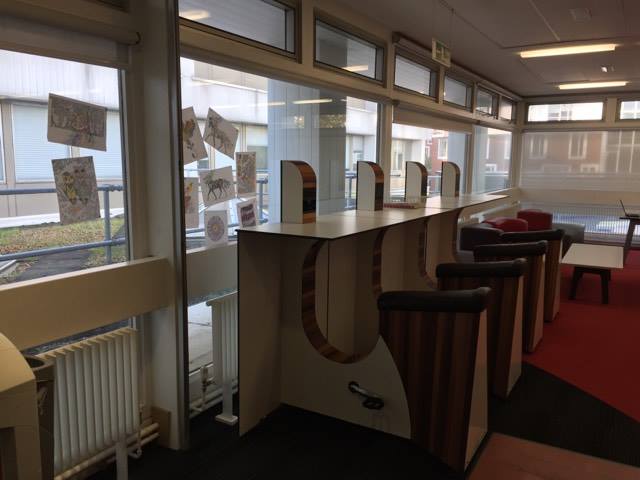Study cycles: aiding productivity?
By now, most freshers will have experienced that sinking feeling of seeing their first reading list of the year. Whether you planned to join the Judo society to become the next Ronda Rousey or Thai Boxing to take the title from Joanna Jędrzejczyk, you may have replaced that with building your pecs carrying textbooks to L3. Naturally, one of the biggest challenges students face is how to keep up with their course, knowing that employability demands you have an extracurricular life, too.
So imagine the unbridled joy when this fresher first noticed that ingenious invention: bicycles that charge devices. On my way to the fourth floor, I noticed a girl cycling furiously, tapping away at her device. As I approached, I saw that she was charging her phone.
So I climbed on and cycled, and I have to say I had a good time. I plugged my iPad into the socket and watched as the flickering green bar rewarded my effort
So I climbed on and cycled, and I have to say I had a good time. I plugged my iPad into the socket and, like the Type A personalities we are, watched as the flickering green bar rewarded my effort with electrical charge. While I don’t think I could write a paper or analyse a case on the bike, there are plenty of light tasks to tick off: reading the Financial Times, checking emails, or watching a documentary in a foreign language, for instance. I was productive and I finished energized after clocking 25 minutes of physically activity, but the crucial advantage of the cycles is that I don’t need to isolate my work time from my exercise time. It’s an efficient way to integrate work and wellness.
Of course, the cycles do not merely represent another way to stay productivity or incentivize multitasking. They generate energy in a way that requires production and not just consumption, and encourage a healthy reflection on environmental sustainability.
But it also made me think. What am I sacrificing but insisting that I merge my academic work with physical exertion?
But it also made me think. What am I sacrificing but insisting that I merge my academic work with physical exertion? Writers and artists, from Rebecca Solnit to Robert Walser, Richard Long to Henry David Thoreau, have extolled the virtues of walking as creative stimulant, whether as a path to reflection, communion with nature, or form of meditation. It is seen as a chance to disconnect, look inward, and engage in the mindfulness that is so crucial to emotional wellbeing.
The body has historically been seen as the mind’s foil – sensuality and pleasure versus the rational, disciplined mind. Exercise represents acknowledgement of our physical power and limitations, compared to the intellectual capabilities that concentrate on academic problems.
As we get into the heart of the year, it is worth remembering to dedicate time to exercise and sport
Productivity exists as a professional, even moral, ideal. Far from technology increasing our leisure, economic forces such as globalization and the recession appear to have resulted in more demands on our time. Multitasking, however, has been shown to be less effective compared to concentration. The philosopher Josef Pieper argued that leisure is the basis of culture, and countless philosophers and spiritual thinkers note that reflection is the beginning of wisdom. So while multitasking is often necessary and prolific output has its place, so too does thoughtfulness, single-mindedness and reflection.
As we get into the heart of the year, it is worth remembering to dedicate time to exercise and sport. To do so benefits us not just physically, but emotionally and cognitively, helping us to stay at the top of our game.

Comments